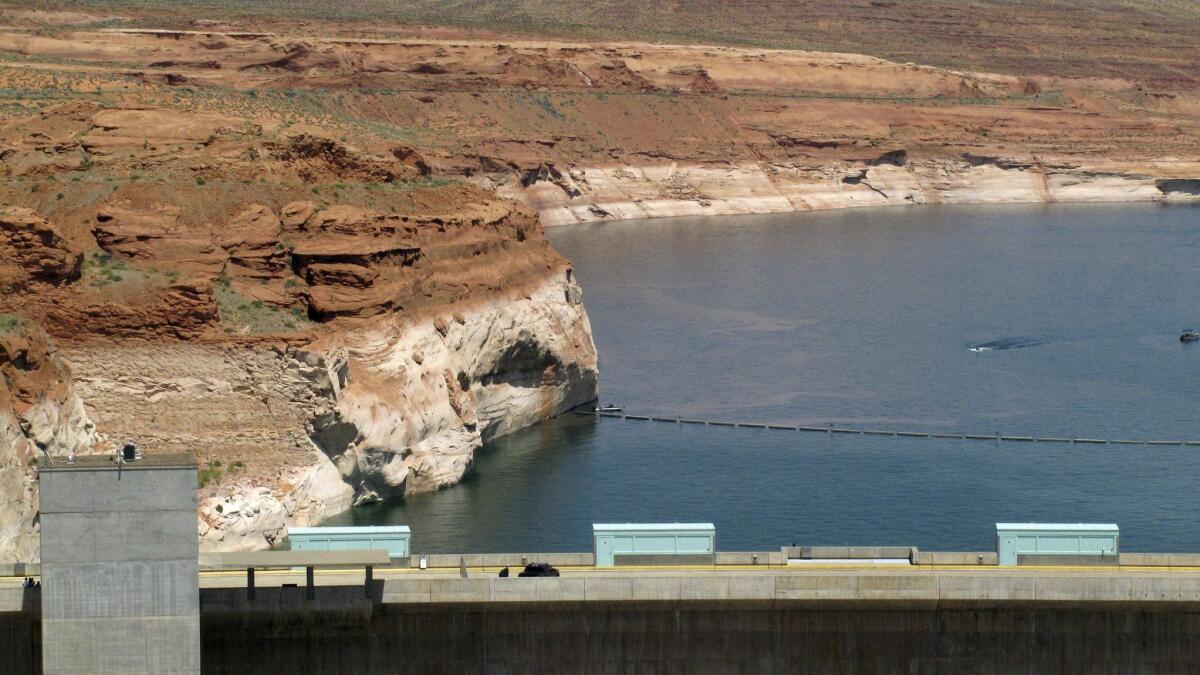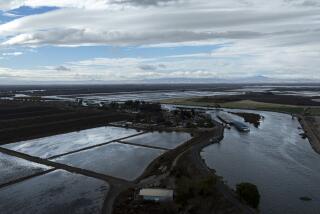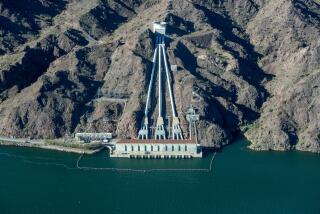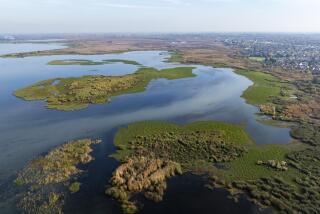Op-Ed: A vote for three Californias is a vote for endless water wars

Californians will vote this fall on a radical proposal to split the state into three: Northern California, Southern California and just plain California.
The plan obviously raises a myriad of policy issues. But anyone inclined to vote for the initiative should be particularly concerned with the implications for the state’s most critical resource: water.
As Mark Twain reputedly quipped, water is for fighting over. Dividing California into three states is certain to cause a fracas unprecedented in our already contentious water history.
Some intrastate rivers would suddenly become interstate rivers, raising the question of how much of these rivers would be owned by which state. Southern California and Northern California would share the San Joaquin River, for instance, which flows northwest from the southern Sierra. Would one of the states get the bulk of the water, or would they share halfsies?
As Mark Twain reputedly quipped, water is for fighting over.
Although the two states could agree on an allocation, perhaps based on historical use, such agreements face tough political headwinds. Increasingly, states are suing each other over interstate rivers, and only the U.S. Supreme Court can hear such disputes. Resolution can take many years and cost millions of dollars in legal fees.
After more than a decade of litigation, the Supreme Court determined in 1963 that California is entitled to 4.4 million acre-feet from the Colorado River, whose water is shared with six other states and Mexico. Coastal cities from San Diego to Ventura rely on this water, as do a handful of desert water agencies. If California splits, which state gets this entitlement?
Los Angeles and Ventura would be part of the new, entirely coastal state of California, which would not abut the Colorado River. (The river flows along the border of what would become Southern California.) Neither city lies within the Colorado’s watershed. States generally cannot claim a right to part of a distant river to which they have no geographical connection, raising possible questions regarding L.A.’s and Ventura’s right to Colorado River water.
The proposal also raises the question of how groundwater would be regulated. In 2014, California became the last state in the West to adopt statewide groundwater regulations. Previously, many regions of the state overdrew from their groundwater aquifers, lowering water tables, drawing in coastal salt water and risking subsidence.
If California were divided into three, each new state would presumably be free to decide whether to stick with the new law or return to old profligate ways. Some groundwater basins would become interstate. If Northern and Southern California shared a basin, Southern California could conceivably pump it dry while Northern California looked on helplessly. Mississippi is currently suing Tennessee for stealing groundwater in just this kind of scenario. Northern California vs. Southern California could be next.
What’s more, states own the water within their borders. Right now, parts of Southern California enjoy contractual rights to water from the State Water Project. But under the new regime, that water would belong to Northern California, because that is where the water comes from. The two states would have to determine whether Northern California would abide by the old contract and continue to ship water to Southern California. Northern California could decide that sending its water south is unreasonable.
Enter the Fray: First takes on the news of the minute from L.A. Times Opinion »
It’s not clear how the State Water Project would even operate. Its infrastructure would sit in all three states. Under the initiative, each state would get the “assets” within its borders, unless the current Legislature determines otherwise. Northern California might try to refuse Southern California use of the Orville Dam, the State Water Project’s main storage facility. Or perhaps the three states would manage the project jointly, bickering endlessly over a system that benefits Southern California far more than Northern California.
Californians have approved water bonds to pay for new infrastructure and conservation measures. Under the proposal — again, unless the Legislature decides otherwise — California’s current debt would be divided proportionately by population. Northern Californians could end up paying for water projects in California and Southern California, or vice versa. It’s unclear who would get to spend the funds that are not yet committed.
In the 1870s, the federal scientist and explorer John Wesley Powell urged Congress to organize Western states by watershed. Powell’s approach would have shaped each political unit around a river rather than splitting rivers into multiple parts, thereby limiting interstate rivers and the disputes they create. Instead, Congress drew arbitrary political lines across the West, generating decades of interstate water disputes.
It’s too late to fix that mistake. But we can avoid drawing new political boundaries that will saddle future generations with even worse water wars.
Barton H. Thompson is a professor of natural resources law at Stanford Law School and an attorney with O’Melveny & Myers. Matt Kline is a partner at O’Melveny & Myers. Heather Welles is an associate with the firm.
Follow the Opinion section on Twitter @latimesopinion or Facebook
More to Read
A cure for the common opinion
Get thought-provoking perspectives with our weekly newsletter.
You may occasionally receive promotional content from the Los Angeles Times.






